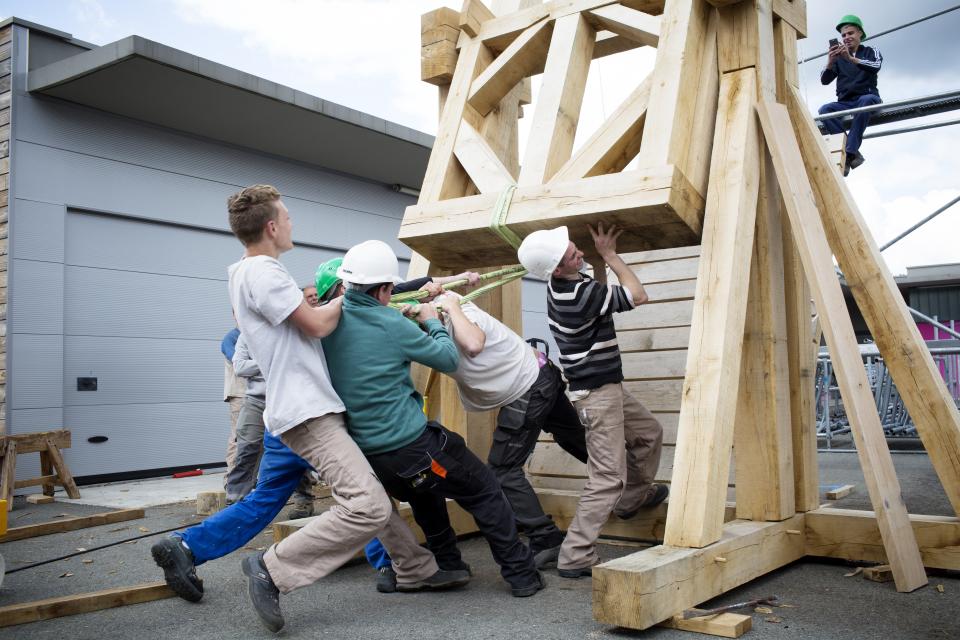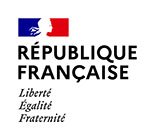You are here
A National Archaeological Education Plan
As part of its goal to transmit archaeological knowledge at a national scale, Inrap develops partnerships with local governments, education authorities and the Dracs (Directions régionales des affaires culturelles - Regional Directorates of Cultural Affairs) to realize youth education programs. In this framework, it develops specific resources.
Cultural and artistic education (EAC) is one of the main priorities of both the Ministry of National Education and the Ministry of Culture and Communication. Archaeology is indeed an effective tool for demonstrating the importance of culture to young people. It provides direct viewpoint into the lifeways of past societies and explains the evolution of regions and the environment, while favouring a critical and autonomous understanding of them. It also contributes to the development of an awareness of our heritage and universal culture.
For these reasons, since 2014, Inrap has developed a national archaeological education program following on a multidisciplinary, local and citizenship approach.
Through the remains that it uncovers and the methods used to understand them, archaeology covers a broad range of educational fields: history, geography, physical sciences, life sciences, earth sciences, technology, art history, classic literature, etc. This multidisciplinary spectrum enables the use of diverse pedagogical approaches, including visits to sites and cultural and scientific centers or establishments, and classroom, group and individual activities.
Preventive archaeology plays a central role in all regional contexts: rural, urban, suburban, etc. Its spatial-geographic connection enables the (re)discovery of a region and an appropriation of its history. Learning to analyze and understand a region leads to an awareness of its evolution and encourages one to share in the responsibility for its preservation and development.
In these ways, archaeology permits each person to understand their place in time and space. It provides reference points that enable individuals to develop as citizens and to understand their social responsibilities, in continuity or discontinuity with a history, and within a shared geographic region in a constant state of evolution.
Finally, by renewing our knowledge of human origins and changing human relationships to the environment, as well as the successive occupations of geographic regions and climatic evolutions, archaeology enables us to consider current debates, such as bioethics, migrations and diet, from a historical perspective.
Since 2014, Inrap has implemented a national program comprised of three axes:
Educator training
The aim is to educate and train teachers (initial and/or further training), as well as the main participants in extracurricular activities (guides, mediators, animators, etc.)
“Mediation” and partnerships
Training and resources: Inrap accompanies cultural and scientific actors interested in realizing artistic and cultural projects related to an archaeological topic.
For this purpose, hands-on educational kits have been developed for the field of pottery analysis, in partnership with scientific, cultural and technical centres. They can be easily integrated within a broader education program destined for children 8 years and older.
Many experimental archaeology projects are also conducted each year with the aim of reconstructing the methods of production and use of archaeological remains.

Experimental archaeology in Riom High School: reconstruction of a 14th century drawbridge in Auvergne.
© Marielsa Niels, Inrap
Ressources
To ensure a wide distribution of its educational tools (educational kits, booklet-games, workshops, hands-on sessions, exhibits, books, audio-visual programmes, educational guides), Inrap verifies that the resources produced are adapted to the current educational programs.
Actions and resources for youngsters
- Visits to Inrap sites and centers
- Archaeologist participation in workshops (such as pottery analysis/link to Archéolab)
- Workshops (including ceramology / link to archéolab)
- Digital resources
- Animated films and audio-visual series
- Children's books
- Exhibits
- “Tip Taupe” booklet and game

